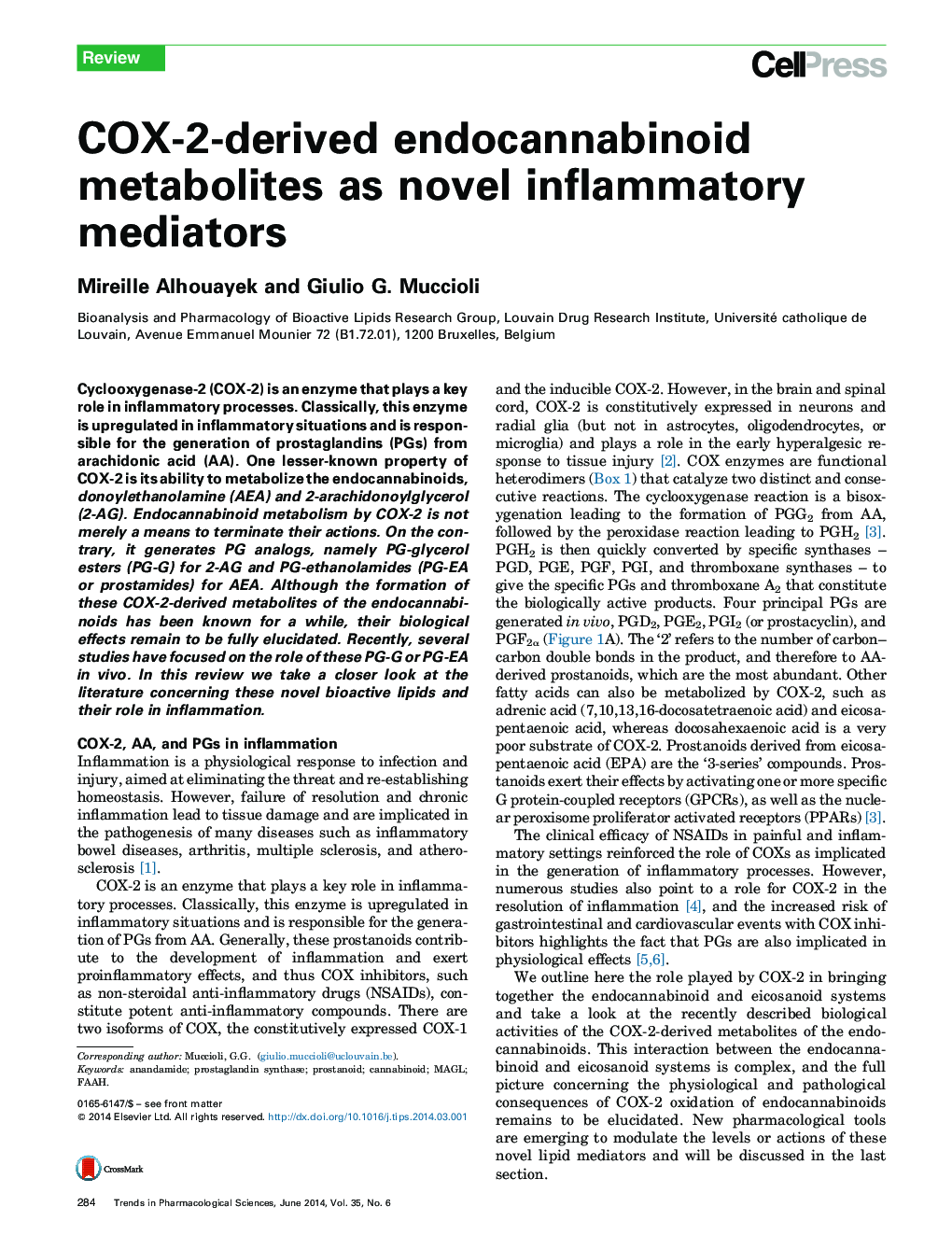| Article ID | Journal | Published Year | Pages | File Type |
|---|---|---|---|---|
| 2572560 | Trends in Pharmacological Sciences | 2014 | 9 Pages |
•PG-G and PG-EA are COX-2-derived metabolites of endocannabinoids.•COX-2 is at the center of crosstalk between the endocannabinoid and prostanoid systems.•PG-G and PG-EA represent novel lipid mediators in inflammation.•COX-2 substrate-selective inhibitors control PG-G and PG-EA levels and activity.•Antagonists of their receptors are being characterized.
Cyclooxygenase-2 (COX-2) is an enzyme that plays a key role in inflammatory processes. Classically, this enzyme is upregulated in inflammatory situations and is responsible for the generation of prostaglandins (PGs) from arachidonic acid (AA). One lesser-known property of COX-2 is its ability to metabolize the endocannabinoids, N-arachidonoylethanolamine (AEA) and 2-arachidonoylglycerol (2-AG). Endocannabinoid metabolism by COX-2 is not merely a means to terminate their actions. On the contrary, it generates PG analogs, namely PG-glycerol esters (PG-G) for 2-AG and PG-ethanolamides (PG-EA or prostamides) for AEA. Although the formation of these COX-2-derived metabolites of the endocannabinoids has been known for a while, their biological effects remain to be fully elucidated. Recently, several studies have focused on the role of these PG-G or PG-EA in vivo. In this review we take a closer look at the literature concerning these novel bioactive lipids and their role in inflammation.
